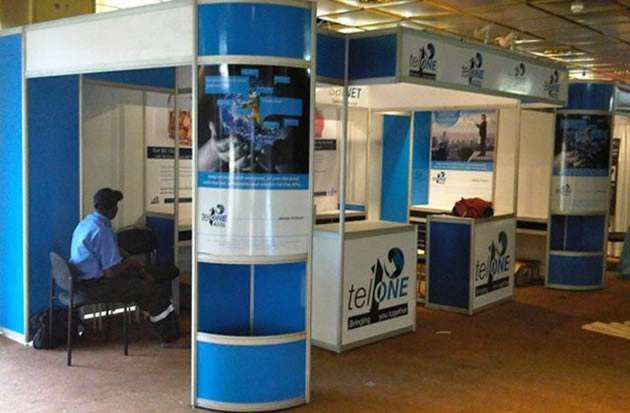Let’s avoid invisible competition in agric

Charles Dhewa
One of the unintended consequences of knowledge sharing is an increase in the number of people doing the same agricultural activity. This leads to congested niches where particular value chains rapidly reach their cap or ceiling.While the market playground may look the same and fair from the outside, Zimbabwean agriculture is beset by numerous pervasive competitive dynamics that have a bearing on sustainability and profitability.
Competition, and to some extent conflict of interest, is rife in all value chains such as poultry, beef, maize, input supply, contract farming and extension services.
Food aid and Government programmes also tend to introduce some competitive dimensions that should be understood in order to minimise negative consequences. Without intentional coordination, a lot of value is lost than gained through these competitive patterns in a small market of 13 million people. It would be good if the competition was directed at satisfying the global market.
Competition for farmers
As a knowledge system, current extension models from diverse actors such as Government, NGOs, farmer unions, private companies and markets are confusing many farmers.
Lack of harmonisation is revealed in how, although these actors compete for the same farmers, such competition is not improving productivity and collective outcomes. There are many cases where contract arrangements skip rural agro-dealers and go directly to farmers yet agro-dealers are an integral part of farmers’ socio-economic ecosystem. Several agro-dealers extend loans to farmers and also contribute to local employment creation.
Skipping such actors resulted in most external interventions failing to last long. The same happens when development agencies skip working with farmer unions in the same area.
Rather than compete for farmers, an ideal situation should see farmer unions, contract companies, NGOs and Government extension services consolidating plans and resources for better use by farmers. When competition is not harmonised, it translates into different outcomes on the market in terms of volumes of commodities supplied, inconsistent standards and quality, among other mishaps. Individual actors strive be identified with their own products whose standards may not be required by the market.
In most cases contracted farmers and those supported by NGOs or those supported through government input schemes, are treated the same by the market yet they will have incurred different costs in producing.
Some have more advantages than others and that presents silent competition. Contracted farmers may want to sell in a hurry so that they quickly meet their contractual needs while those who got inputs for free may want to take their time since they have not incurred serious costs.
The importance of avoiding preferential treatment of certain actors
A major motivation for all value chain actors should be improving the effectiveness of value chains and related nodes. That should be done in such a way that farmers are strengthened to do what they know best. Same with traders, manufacturers, transporters and other actors. Successfully doing so will prevent the temptation for actors to jump from one value chain node to another.
For instance, giving tobacco farmers preference in cash withdrawals may result in many farmers leaving other value chains such as horticulture that are the backbone of nutrition security but do not get VIP status like tobacco.
Farmers and traders in informal markets handle cash on a daily basis in order to keep the food system functioning but they have not been given special financial priority by financial institutions. In fact, horticultural farmers and traders handle more cash than individual farmers annually. Treating one value chain as if it can stand on its own creates resentment among value chains and that hinders cultivation of good relationships between value chains.
We end up with weak value chains where farmers try to become traders on the assumption that trading has more money or transporters trying to be farmers or processors. Steel manufacturers end up competing with SMEs in producing agricultural equipment.
It becomes difficult to ensure value chain effectiveness and efficiency under such negative economic environments. Organising actors and value chains will be a good way of managing gluts and laying the foundation for participation in global markets.
It becomes easy to identify producers able to participate in global value chains and support them accordingly. Special Purpose Vehicles can then be set up to drive consistent production and supply.
Where there is no co-ordination, exploitation of economic drivers by big players becomes rampant at the expense of local farmers and business people.
Big companies with the privilege to mobilise finance can simply go into rural areas and buy all commodities such as maize or livestock at the expense of local aggregators who should also benefit when there is proper economic justice.
When big companies exploit local economic drivers, they do not create meaningful employment that leads to wealth creation but general labour which keep local people poor.
How contractual arrangements may limit ability to adapt
While contract farming is touted as the best model, it has its own limitations. The contract formula is designed in such a way that farmers cannot break even and survive on your own. That is one of the reasons why contracted farmers find it difficult to grow.
They collapse with contract companies like what has happened in the cotton industry. Most farmers trapped in contractual arrangements are not happy, for instance, those in bananas who have been price-takers for decades.
One of the biggest setbacks is on knowledge generation and retention.
For instance, for most tobacco farmers, producing the crop for 10 years becomes an addiction. They are locked in a loan cycle. Focusing on one crop for many years kills innovation.
If the tobacco industry collapses, many farmers will find it difficult to move into a different crop. In a country with abundant natural resources, knowledge travels with commodities. The more commodities the more knowledge, although sometimes, engaging in too many commodities fragments knowledge.
Instead of sticking with one agricultural commodity, farmers need at least four commodities (crops and livestock) to generate useful knowledge.
These enable farmers to balance seasonality, subsistence and availability of minimum resources. For instance, although maize generates low profit, it has a guaranteed market. On the other hand, high value crops need precision farming while the export market can be a window for new knowledge.
In horticulture, some farmers can target crops with a long shelf life like potatoes and butternuts whose price takes time to mature. Natural crops rotation should also come in – legumes, tubers and grain.
What the cotton story teaches about knowledge and commodities that reach a tipping point
Knowledge in one contract crop becomes stale for other commodities.
A seasoned farmer should be seen in three markets so that s/he does not become a new entrant all the time. When cotton collapsed, farmers in Gokwe who switched to sweet potatoes, became new entrants in the Bulawayo market where sweet potatoes from Chipinge had dominated for years and created a niche for themselves.
Due to lack of a smooth transition from cotton to sweet potatoes, some Gokwe farmers continue growing cotton speculatively because that is the knowledge they have acquired for years.
Having gathered cotton knowledge for over 20 years, farmers are having to unlearn it in order to accommodate new knowledge on sweet potatoes, sesame and other new ones that are replacing cotton. Knowledge transfer within households in cotton producing areas has, for a long time focused on cotton only.
During decades of cotton production, there was no space and time for the young generation to develop passion for other commodities. Cotton production became a forced career for children.
Likewise, if the tobacco market collapses, many farmers will be stuck with tobacco knowledge and related resources. Soils will have to be adjusted to suit new commodities.
Traditional African agriculture had a way of avoiding these challenges through diverse versions of agro-ecology. Rather than be locked in contracts, farmers should be enabled to grow on their own so that they do not become perpetual price-takers. Exposing farmers to several models will prepare them to participate in the global market.
The power of situation awareness and exposing farmers to many agribusiness models
It is important for farmers to realize that an individual agricultural commodity cannot dominate forever. It reaches a peak and starts declining.
Tobacco farmers have to be exposed to other models in case tobacco starts collapsing. At the moment, tobacco growing is a prescriptive process. That is why the e-marketing system introduced this year should have embedded a personal touch to minimise suspicion among farmers.
Lessons from informal agriculture markets indicate that data alone does not improve agricultural performance. Situational awareness is critical in giving farmers a consistent understanding of the context of the game they are playing.
When faced with players who understand the market environment better, no amount of large scale data analysis can help farmers.
Price information alone is not very helpful under such situations. The whole agricultural market is a combination of many variables which enable the price to become what it is today but may be different tomorrow. By understanding the market landscape farmers can make choices based on why one move is better than another.
An agricultural strategy based upon an understanding of the market landscape is vastly superior than relying on fragmented sources of knowledge. Farmers who use their situational awareness to manipulate their environment become more competitive.
However, better agribusiness models are keys in getting to the pinnacle of situational awareness.
Charles Dhewa is a proactive knowledge management specialist and chief executive officer of Knowledge Transfer Africa (Pvt) (www.knowledgetransafrica.com) whose flagship eMKambo (www.emkambo.co.zw) has a presence in more than 20 agricultural markets in Zimbabwe. He can be contacted on: [email protected]; Mobile: +263 774 430 309 / 772 137 717/ 712 737 430.









Comments